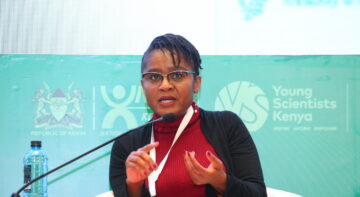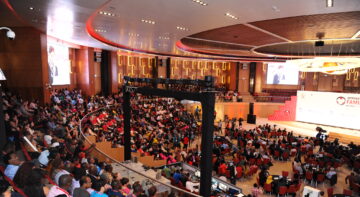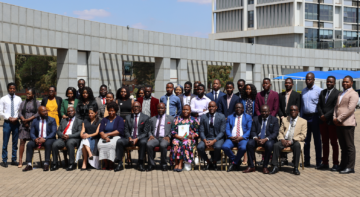News

AFIDEP’s Executive Director, Dr. Eliya Zulu and the Director, Science Communications and Evidence Uptake, Dr. Rose Oronje will be participating at the What Works Global Summit 2016 (WWGS2016). The Summit whose theme is Putting Evidence to Work for Better Policies, Programmes and Practice will take place from 26th to 28th September 2016 in Bloomsbury, London.
Dr. Oronje will be chairing a session on Health in sub-Saharan Africa and will be a panelist at a session discussing lessons from sub-Saharan Africa on building a culture of evidence, titled Strengthening capacity to use research evidence in health policy decision-making: lessons and reflections from Kenya and Malawi. Other panelists include Dr Damson Kathyola, Ministry of Health, Malawi, and Hon. Dr Susan Musyoka, MP, KenyaӬand the Chairperson of the Kenya Parliamentary Caucus on Evidence-Informed Decision-Making (PC-EIDM), which seeks to advocate for use of evidence in oversight and decision-making among the Members of Parliament and other arms of Government.
In addition, Dr. Oronje will make a presentation at a session on Challenges in research to evidence in sub-Saharan Africa – Why are poor countries’ efforts to overcome barriers to research use bearing little results? The case of Kenya and Malawi. Dr. Zulu will chair a session on Global perspectives on the use of evidence.
This high-level gathering will provide a forum for sharing country experiences of what works in promoting the use of evidence in decision-making. The forum will bring together senior leaders from governments, non-governmental organizations, and funding agencies from across the world to share examples of how governments are building capacity to support evidence-informed policymaking, and to encourage transnational collaborations.
The aim of the forum is to:
- Share and discuss successful approaches for addressing the challenges of implementing evidence;
- Reflect on policies and platforms that support the use of data and evidence, understanding how country contexts influence these choices;
- Network and develop ties with policymakers, practitioners, experts and other advocates of evidence-informed policymaking; and
- Discuss an ongoing strategy for forming a global coalition on evidence to foster knowledge exchange, sharing of country experiences and support initiatives in evidence-informed policymaking.
The Summit is hosted by the Alliance for Useful Evidence, Nesta and Results for All/Results for America with support from the William and Flora Hewlett Foundation. For more information about the Summit visit www.wwgs2016.org and follow the conversation on Twitter #WWGS2016
Related Posts




